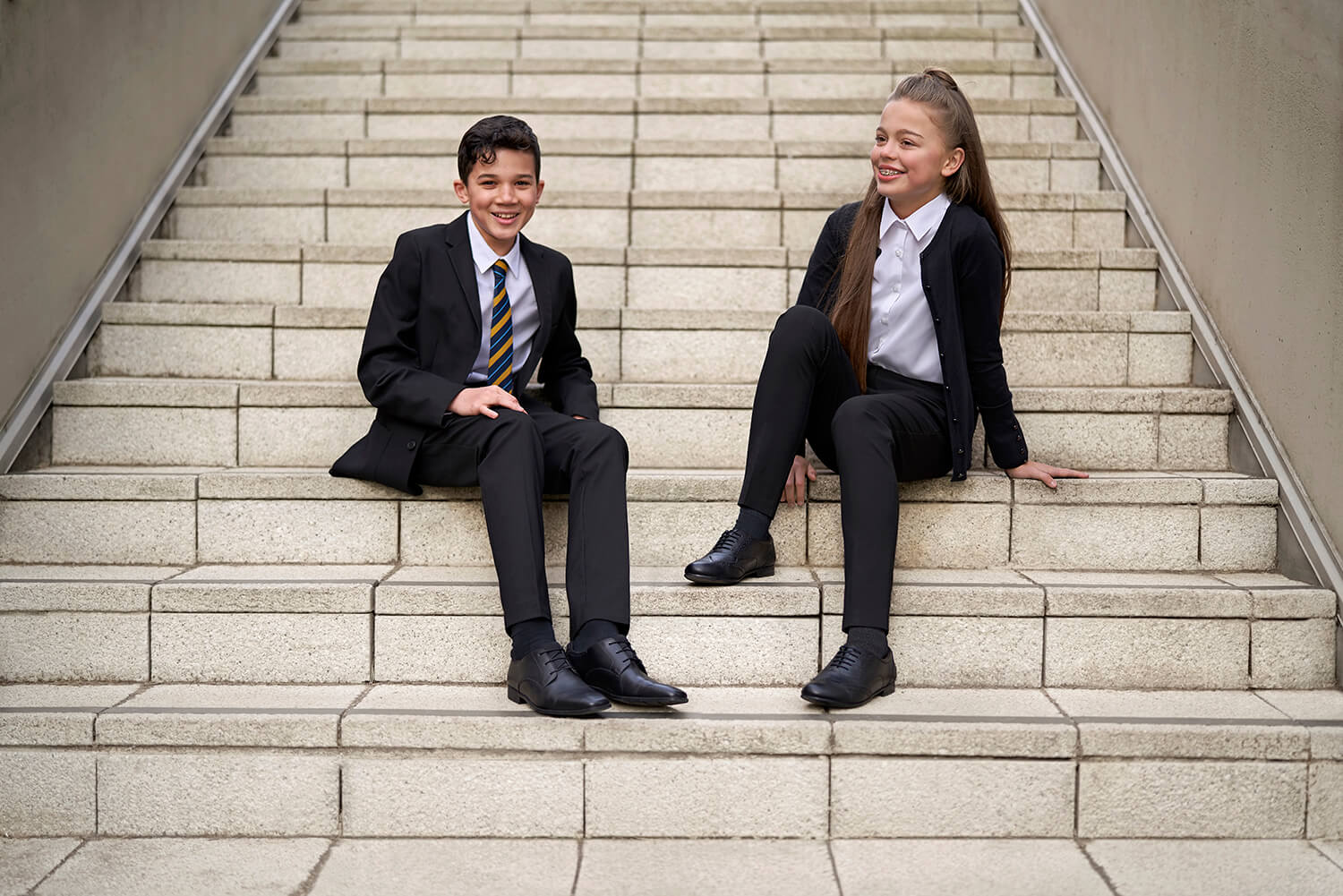
The transition from primary school to secondary school can be tough for both pupils and parents.
For children, it can be disconcerting to go from being the oldest students to the youngest, particularly if they don’t have any older siblings at their new school. Plus, there’s all the usual stressors of the annual return to school after the summer holidays. The move can be even more daunting if children are going from a small, local primary school to a bigger high school. Parents, on the other hand, can often find that the biggest difference between primary and secondary education is the level of independence their child is beginning to develop.
Below, we’ve compiled some tips and advice that may help to ease your back to school anxiety, for you and your child.
As a parent, it’s normal to feel nervous about your child making the leap from primary to secondary education, but there are things you can do to ease your anxiety.
One of the most important things you can do is interact with the school at open days, parents’ evenings, and other events. This is a great way to learn more about the school and your child’s teachers. As they go through the school year, you’ll get to hear the teachers’ views on how your child is doing, rather than relying solely on your child’s perspective.
Okay, so you might not get chatting at the school gates after dropping off the kids anymore, but making friends with other parents at the school can help you to feel more reassured that everyone else is feeling the same way as you do regarding the transition.
While the primary role of the teacher is to help your child learn, they’re also there to promote their wellbeing. If you have concerns about your child making friends, having dietary requirements or other health conditions, get in touch with the school. They’ll be able to explain the measures they have in place to support your child and reassure you of what to expect.
As well as all the usual back to school tasks like buying new school shoes, there are a few other things you can do to prepare your child for the end of the summer holidays. With the move to high school, your child will need support to help them develop and become independent individuals. Here are some tips you might find helpful.
Whether your child will be walking to school or using public transportation, it’s a good idea to do a ‘dry run’ of the commute during the summer holidays. This helps your child to familiarise themselves with the route and any landmarks along the way to ensure that they know where they’re going. If public transport is involved, make sure your child knows what to do with their money, bus passes or train tickets.
As well as assessing the route, it can also be helpful to find a buddy to partner with for the journey. Ideally, this would be a trusted friend, sibling or neighbour who will also be heading to the school, but new friends can be a good option too. The buddy system means your child won’t be heading to school on their own, and can be a great way to foster a lasting friendship.
It’s also worthwhile to visit the school at least once before the start of term. You don’t have to have a full guided tour - though this can be helpful - but by attending an open evening, your child can begin to familiarise themselves with the school. Although they won’t know where everything is, seeing a few recognisable sights can help to reduce feeling lost or isolated on that first day.
As your relationship with your child changes, it’s common to feel like your role is diminishing as their independence increases. But it’s important to know that your child still needs your support, even if it’s in a different way to what you’re used to.
So how can you support them? Well, make sure to praise and encourage them at every opportunity, as this will help to build their self-esteem and confidence. In turn, this may result in them trying and achieving new things, so continue to show interest in their studies, hobbies, interests and extracurricular activities.
However, it’s a good idea to step back a little, and respect your child’s need for alone time, privacy and autonomy. Let them make their own decisions, and try not to pressure them about their performance and achievements. While it may feel like your child has suddenly changed from being open to more secretive, this is a natural part of growing up.
When moving to secondary school, your child gets a new beginning, and may wish to try new things. Whether that means joining an extracurricular club, trying out for a school sports team, learning an instrument or just socialising with their new friends outside of school time, the chances are they’ll need your support to do it.
This help could include picking them up later if public transport isn’t available after school, funding trips or equipment, or even dropping them off in town or at a friend’s house. Your child is becoming more independent, but they’re not an adult. By assisting with the things they can’t do yet, you can help them to enjoy themselves and broaden what they can do.
Author: Click Consult, published 22-06-2023.